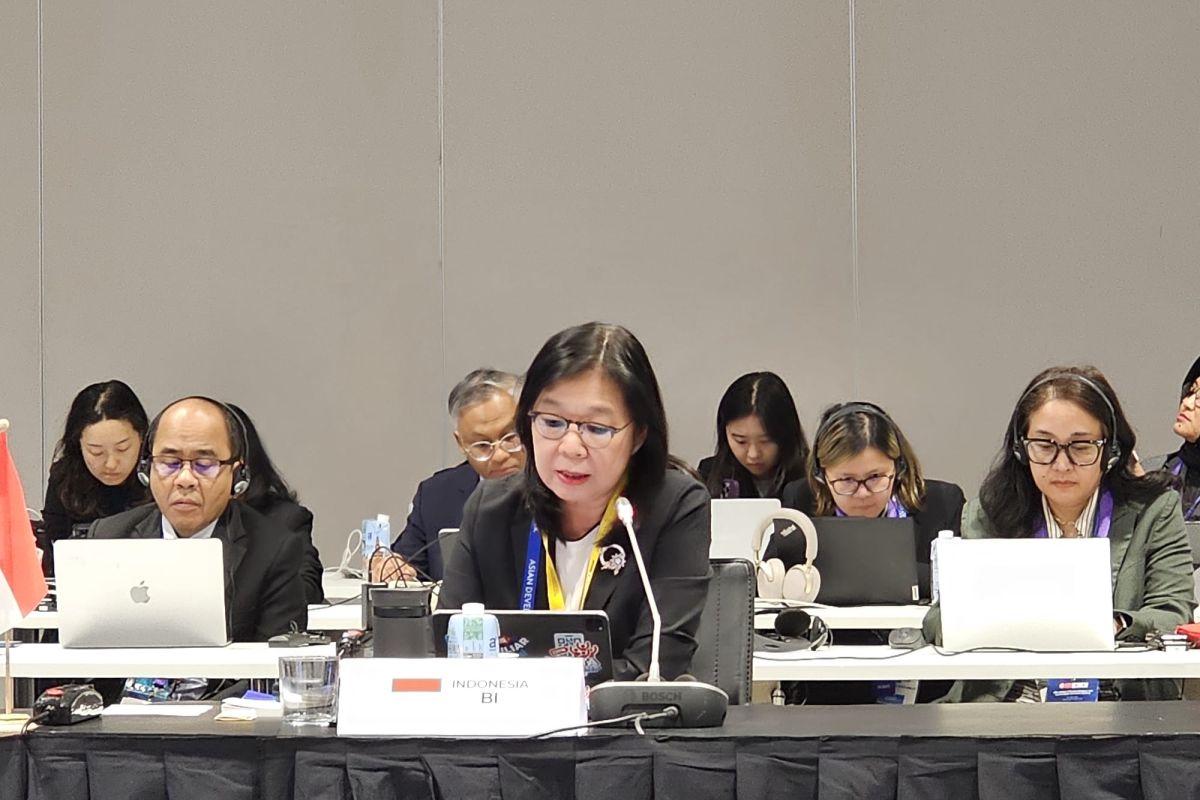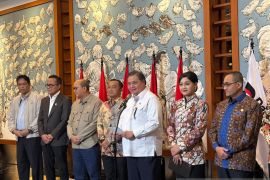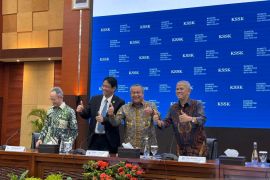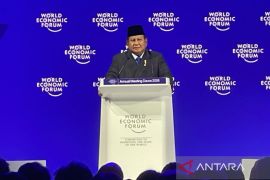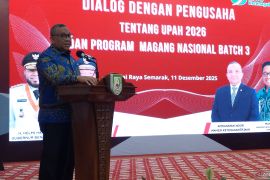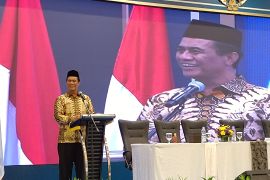The initiatives include strengthening the funding structure of the Chiang Mai Initiative Multilateralization (CMIM) currency swap arrangement.
They further include bolstering regional financing arrangements through amendments to the CMIM agreement for the operationalization of the Rapid Financing Facility (RFF).
"This is in line with Bank Indonesia's support for strengthening the CMIM framework, so that CMIM remains responsive, flexible and can help member countries overcome future challenges," BI Deputy Governor Filianingsih Hendarta said in an official statement received here on Monday.
In addition, the initiatives include strengthening fiscal capacity through the ASEAN+3 Fiscal Policy Exchange, developing financial markets through the Asian Bond Markets Initiative (ABMI), and augmenting AMRO's capacity to support regional resilience.
At the forum held in Milan, Italy, on Sunday, Hendarta outlined Bank Indonesia's policy response for facing current challenges by strengthening the mix of monetary, macro-prudential, and payment system policies.
These policies are in line with the view of the Ministry of Finance, which has said that synergy is continuing to be carried out through fiscal and monetary policies.
Meanwhile, the joint statement agreed at the meeting also emphasized the importance of discussions on strategic issues, such as updating the Strategic Directions of the ASEAN+3 Finance Process, strengthening the Disaster Risk Financing Initiative (DRFI) framework, and identifying future ASEAN+3 Future Initiatives.
To strengthen regional financial stability, ASEAN+3 also emphasized the importance of intensifying synergy between CMIM and the International Monetary Fund (IMF) to boost the effectiveness of the world's financial safety net.
AFMGM+3 is an annual forum attended by finance ministers and central bank governors from ASEAN+3 countries to discuss global and regional economic developments, challenges faced by the region, as well as economic and financial cooperation initiatives in the ASEAN+3 region.
It is an important forum to boost regional cooperation and collaboration to face increasing global uncertainty while affirming the spirit of ASEAN+3 in strengthening resilience, inclusiveness, and sustainable economic growth amid an increasingly complex global economic landscape.
This year's meeting was led by the central bank governors and finance ministers of the ASEAN+3 co-chairmanship, namely Malaysia and China.
The Malaysian delegation was led by Finance Minister II Amir Hamzah Azizan and Bank Negara Malaysia Governor Abdul Rasheed Ghaffour.
The Chinese delegation was led by Chinese Finance Minister Lan Fo'an and People's Bank of China Governor Pan Gongsheng.
Meanwhile, the Indonesian delegation was led by Minister of Finance, Sri Mulyani Indrawati, and Deputy Governor Hendarta.
The meeting was also attended by representatives from all ASEAN member nations as well as Japan, Korea, and China as the +3 countries.
At the end of the meeting, the Philippines and Japan, as the next co-chairs of ASEAN+3, shared the plan for holding the 29th AFMGM+3 Meeting in Samarkand, Uzbekistan, in 2026.
The meeting on Sunday also marked the end of Malaysia and China's 2024–2025 term as co-chairs of ASEAN+3.
Related news: Indonesia achieves second-highest G20 growth in Q1
Related news: Indonesia urges stronger ASEAN role anchoring regional peace, balance
Translator: Rizka Khaerunnisa, Katriana
Editor: Arie Novarina
Copyright © ANTARA 2025
